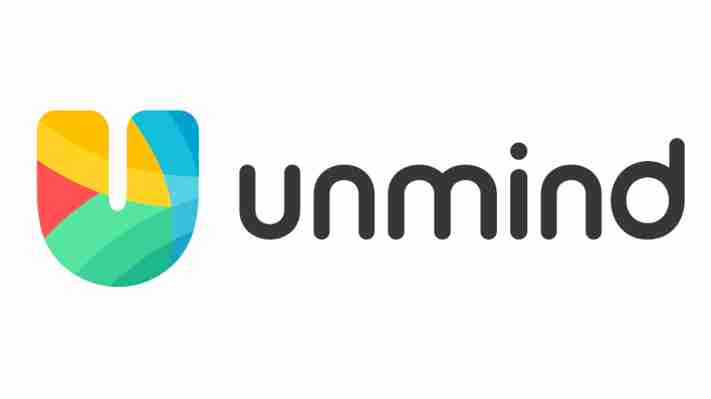One of the most frustrating aspects of a career in clinical psychology, says Dr. Nick Taylor, is that the doctor never gets to see the patient at the optimal moment. It is either too early to diagnose the problem, or too late to prevent it taking hold.
In his years working as a clinician with the UK National Health Service (NHS), he says he never met anyone early enough in their journey towards mental illness, which meant people couldn’t receive the right care at the right time.
Taylor attributes this problem to the emphasis placed on reactive healthcare, whereby issues are addressed only after they appear. Instead, he proposes a shift in the approach to dealing with mental ill-health, towards a system built around prevention rather than cure.
This is the objective of SaaS company Unmind, which Taylor co-founded in 2015. The workplace mental health platform provides employees with a way to monitor fluctuations in their condition, as well as access to meditation exercises and other resources designed to inform a healthier working life.
“We live in a world where we teach our children from age one to brush their teeth, because we know prevention is so important, and the same can be said for physical exercise. That’s exactly where healthcare needs to be,” he told TechRadar Pro .
“The human brain is one of the most complex things in the universe and we don’t get an instruction manual when we receive it. It’s expected that you grow up in life knowing how to manage this thing, but it requires an amount of intentional care.”
In a society in which a quarter of people are said to suffer from mental health problems each year, and there are too few resources to go around, Taylor believes technology can play a key role in helping people manage their own mental health.
A personal connection
Discussions about psychology and mental health have been a fixture in Taylor’s life from very early on. He grew up in a household with three sisters, one of whom has a neurodevelopmental condition called Down Syndrome, which exposed him to a side of life most children are shielded from.
“There was a complexity to Jessica that I didn’t understand at a young age. As I grew up, I formed a deep relationship with her, but a different kind of relationship. Inevitably, it led to me think a lot about the way we build relationships and what they mean,” said Taylor.
“Watching how Jessica was treated by other people and experienced the world around her was informative. It helped me understand that when we are different, we are treated differently, sometimes to the extent that a disability can be compounded by the society around us.”

He says his experience with his sister permeated many aspects of both his and his family’s lives, and instilled in him a deep-rooted curiosity about the workings of the brain.
Although Taylor did not immediately pursue a degree in psychology (his first was actually in music), his interest in the topic remained and he volunteered throughout his studies with emotional support charity Samaritans.
He later took a role at mental health charity Mind as a sleep-in support worker. Taylor’s job was to assist someone with Korsakoff Syndrome, an illness that causes an almost complete loss of short-term memory. Subsequently, he worked in a residential home operated by the charity, supporting people with various other mental illnesses.
Taylor told us it was during this period, under the guidance of the professionals at Mind, that he came to understand how the framework of clinical psychology could be applied to people’s lives to help them both recover and remain well. Eventually, he went on to earn his doctorate in the subject.
Wellbeing in the workplace
One of Taylor’s other “great passions” is working in the garden, and it was while tending to his garden (a fitting metaphor for nurturing one's mental health, if ever there was one) that his path to founding Unmind first seeded itself.
Although this was before he had retrained as a psychologist, and even before working for Mind, it was at this moment that Taylor realized he wanted to pursue a career in mental support.
Unmind itself was the product of an epiphany, reached separately but synchronously by Taylor and his co-founder Steve Peralta. Both had come to the conclusion that patients rarely receive the right care at the right time, something Taylor had learnt at the NHS and Peralta from his lived experience of mental illness.
The pair agreed that the problem required a new approach based around prevention, and that a digital service embedded in the workplace would provide the ideal vehicle.
As Taylor describes it, Unmind offers customers a platform that “empowers employees to proactively manage their mental health”, through a combination of measurement facilities and access to content (ranging from mindfulness sessions and yoga exercises to healthy recipes) developed by academics and clinicians. The app also signposts users towards services within their organization and in their local area that can help with the onset of mental illness.

The customer, meanwhile, gains access to aggregated and anonymized data drawn down from the platform, which is supposed to inform future HR and mental health strategy. As Taylor points out, mental health issues are currently the single most significant driver of absenteeism, presenteeism and staff turnover, all of which can have a serious impact on productivity and the bottom line.
Unmind has enjoyed a significant period of growth since the transition to remote working , which has emphasized the responsibility of employers where staff wellbeing is concerned. The company also recently raised a $47 million Series B, which Taylor says will go towards expanding the company’s reach and investing in research.
Although attitudes towards mental health have come a long way in the past decade and speaking about mental illness is no longer taboo, Taylor says there is much more work to be done before parity is achieved between the treatment of mental and physical health.
“Overall, the trend is positive and I’m encouraged by the trajectory of the space,” he told us. “But at the same time, it’s important to recognize that the problem is still very common; the prevalence of mental illness in society is staggering.”
“What’s exciting about what we’re doing is that it feels like we’re just at the start of a journey. We’re passionate about our vision of a world where mental health is universally, understood, nurtured and celebrated.”
Measurement paradox
Throughout our discussion, Taylor circled repeatedly back to Unmind’s commitment to the science of mental health, something he is clearly keen to emphasize. Indeed, the company employs a dedicated team of scientists and is participating in a number of studies with the University of Cambridge and University of Sussex.
However, while Unmind is almost certainly capable of helping people improve their awareness of their own mental state, there remain questions over the extent to which it can help fend off mental illness.
The main conundrum is that the company aims to solve a problem before it even exists, which makes empirical measurement of effectiveness almost impossible. Although a customer could feasibly compare data from one year to the next to get a sense of the direction of travel, or use data from a comparable organization as a benchmark, such analyses would lack precision. There is no concrete way to know when you have solved a problem before it becomes one.
Secondly, the platform relies on people’s ability to assess their own mental condition effectively, but it’s difficult to achieve objectivity when performing self-analysis and translating feelings onto a numerical scale is tricky too. The scores allocated to aspects of a person’s mental health by the platform are informed by data provided over time in the form of standardized questionnaires and mood diaries, but the validity of these scores is to some extent linked with that individual’s ability to self-assess.
Lastly, there is an opportunity for a misalignment between the objectives of the businesses that recruit Unmind and the end-users of the platform. Naturally, the organization is interested in the benefits from a workforce productivity and strategy optimization perspective, whereas employees are more likely to prioritize their own happiness and wellbeing. Whether it’s possible for the Unmind platform to balance these different and potentially contradictory objectives is unclear.
TechRadar Pro put all of these concerns to Taylor, who pointed out that these kinds of challenges are inherent to the handling of mental health in any context. He also says that giving up all attempts to measure mental health equates to giving up on tackling the obvious challenges it creates.
“There’s the old adage: you can’t manage what you can’t measure,” he noted. “One of the challenges in the field of mental health is that our conscious mind is fickle. Our perception of mental health is really what we’re measuring here, not brain activity or any other physical symptom.”
“But awareness of self is valuable in so many ways when it comes to identifying areas of opportunity. The critical thing about the [Unmind’s] measurement tools is that they correlate with the gold standard measures.”
By this, Taylor means the company’s tests have been designed to map onto standards used in a clinical setting, such as the PHQ-9 assessment for depression and GAD-7 for anxiety. And there is research soon to enter peer review, he says, that suggests digital assessment might actually be the optimal way to triage people suffering from mental illness.
Taylor also contests the idea that the happiness of employees and workforce productivity need be mutually exclusive. In his mind, the former is likely to beget the latter.

A universal problem
The measurement paradox and other questions aside, it’s clear that platforms like Unmind will play a larger and larger role in the workplace in the years to come.
For example, Microsoft recently integrated meditation service Headspace into its collaboration platform , which is used by many millions of workers worldwide. And Taylor says Unmind will pursue similar partnerships in future, provided there is value to the end user.
Although there has been significant progress in attitudes towards mental health, it remains a problem encountered by all businesses and almost all people in some form. This universal quality makes the need for new technology-based approaches all the more urgent, Taylor believes.
“Every human being that has ever lived has had mental health from the moment they were born to the moment they died, and the same will be true of every human being that ever will live,” he said.
“Mental health is a profoundly central part of the human experience, and it's important we have a toolbox to manage it.”
For all his knowledge and experience, Taylor says he still often fails to practice what he preaches where mental wellbeing is concerned. This he takes as proof that mental health is something that demands continual attention. The sooner that’s understood, the better.
Former Halo developer reportedly making a Monster Hunter-style co-op game for Xbox
Certain Affinity, a games studio that’s contributed to the development of several Halo titles including Halo Infinite , is reportedly working on a new Monster Hunter-style game for Xbox.
First reported by GamesBeat journalist Jeff Grubb and separately corroborated by Windows Central , the unannounced title, codenamed Project Suerte, has been in development since the middle of 2020 and is currently planned for release in 2024.
Grubb suggested Microsoft greenlit the project to add variety to its roster of Game Pass titles and build on the success the Monster Hunter series has received in recent years.
“They’re working with Certain Affinity on what seems like a Monster Hunter style game – a Monster Hunter clone,” Grubb said, as transcribed by VGC . “They see this gameplay style succeeding, and Microsoft’s like, ‘Hey, we should try to make one of those, is anyone out there going to pitch one?’” he added.
“They want more variety in the kinds of games they’re putting on Game Pass and this is an example of that. They’re like, ‘We probably can’t get Monster Hunter on Game Pass – that would be pretty expensive – but we definitely want a game like that, because we see the potential for that to grow and be a big thing with long-term support’” Grubb said.
Although it doesn’t boast the same recognition as Bungie or 343 Industries, Certain Affinity has had a long involvement with the Halo series, particularly its multiplayer components. Several of its founding members worked at Bungie during the studio’s Halo days, and president Max Hoberman worked as the multiplayer lead on Halo 2.
Certain Affinity has created map packs for Halo: Reach, developed several game modes and maps for Halo 4, updated Halo 2 for The Master Chief Collection, and contributed to the multiplayer side of Halo Infinite. It also assisted in the development of Left 4 Dead and 2016’s Doom reboot.
Last year, the studio announced it had begun leading development on an original IP that Hoberman described as the studio’s “most ambitious title to date”. That unannounced project could be the game it’s cooking up for Microsoft.
Analysis: a Game Pass for every player

News that another potential Xbox exclusive is in the works is exciting enough, but Grubb’s comments about Microsoft’s reasons behind greenlighting the Monster Hunter-style project are more interesting. He suggests Microsoft is no longer looking for exclusive Xbox titles to rival Sony’s, or necessarily trying to leap on the next big craze in gaming, but is more concerned with shoring up its Game Pass lineup to maximize the appeal of the subscription service.
That aligns with recent comments made by Xbox boss Phil Spencer, who framed subscription services like Xbox Game Pass as the future of the industry and said it was an “inevitability” that PlayStation would create its own, rival service somewhere down the line. As such, he thinks it's now the job of Microsoft to innovate and improve the service as far as it can to keep it competitive against incoming alternatives.
One way Microsoft can do that is to ensure the service caters to every type of gamer. If a series like Monster Hunter is peaking in popularity, and Microsoft is unable to secure the titles on Game Pass, what better way to grab a piece of that popularity pie than by making their own, alternative game that’s tailored to the same audience.
If Microsoft is as laser-focused on Game Pass as Spencer suggests, we should expect similar development decisions in the future.
Seven Garmin watches missing from CES 2022 (including the long-awaited Fenix 7)
Garmin revealed two new watches at CES 2022 – the stylish Vivomove Sport analog/digital hybrid, and the voice-enabled Garmin Venu 2 Plus. But several watches that we've been waiting for were conspicuous by their absence.
There was no sign of the long-awaited Garmin Fenix 7 , which we're hoping will appear at some point in 2022. Neither did we see any hints of new Forerunner watches (something we've been waiting for since the launch of last year's Forerunner 55 ).
Here are seven wearables that were missing from Garmin's booth at Vegas – and what we're hoping to see when (and if) they arrive.
Garmin Fenix 7
One device conspicuous by its absence at CES 2022 was the long-awaited Fenix 7 – a premium multi-sports watch that's destined to become the new jewel in Garmin's crown.
There was no hint of the new Fenix at the show, but there's definitely an appetite for a new flagship, as demonstrated when rumors started to pick up pace towards the end of 2021. For example, in October some sites suggested that the new flagship watch may have an AMOLED display – something that would greatly enhance its appearance, but would also result in greatly reduced battery life.

Something that looks more likely for the Fenix 7 is an electrocardiogram (ECG) app. Garmin began recruiting for an ECG clinical valuation study in April 2021, which aimed "to confirm the Garmin ECG (electrocardiogram) software algorithm can detect and classify atrial fibrillation and normal sinus rhythm on single lead ECG data derived from a Garmin wrist-worn, consumer device."
We're not expecting just one Fenix 7 model, either. There are eleven versions of the Fenix 6 currently on sale (Fenix 6, Fenix 6 Pro, Fenix 6 Pro Solar, Fenix 6 Sapphire, Fenix 6X Pro, Fenix 6X Pro Solar, Fenix 6X Sapphire, Fenix 6S, Fenix 6S Pro, Fenix 6S Pro, and Fenix 6S Sapphire) so we're anticipate having several options to choose from when the new watch launches, with further variants arriving in the following months.
Garmin Forerunner 955, 755 and 255
Last year, Garmin started rolling out the next generation of Forerunner watches with the new entry-level Forerunner 55 , and the rest of the series is surely due for an update in the coming months.
The Forerunner 945, 745 and 245 all received a major firmware update in April 2021, which added tools including perceived workout intensity, VO2 Max calculation for trail running, and improved intensity minutes calculation. However, updated sensors and larger capacity batteries would be great hardware upgrades that would bring the series bang up to date.
The Forerunner 945 is a superb multi-sports watch, and is still one of the best wearables in its category, but it launched in 2019 and as it approaches its third anniversary we can't help thinking about the new training tools Garmin could add to its already impressive specs sheet if it releases a successor this year. Like the Fenix 7, it would benefit from an ECG sensor, though again we'd like to see it retain its memory in pixel display to maintain its long battery life.

The Forerunner 745 – a watch made with triathletes in mind – was released in September 2020 and is generally seen as a more affordable alternative to the 945. It's also fractionally lighter, though its battery life is less impressive and it has less on-board storage for music (both of which we'd like to see upgraded for the 755). Considering its age, it's likely to be the last Forerunner to receive an upgrade, but we've got our fingers crossed for a new version before the end of 2022.
The Forerunner 245 running watch is nearly three years old, and has been made almost redundant by the Forerunner 55, which packs all of its best features into a smarter looking package. It'd need a big upgrade to justify its place in the lineup, and we wouldn't rule out the possibility that Garmin might drop it from the range entirely now that its entry-level watch is so capable.

Garmin Vivoactive 4 Plus
As we mentioned above, the Vivomove 3 received an update at CES 2022, and is now available with a built-in microphone so you can take calls and use your phone's voice assistant from your wrist.
We'd like to see the same attention lavished on the Vivoactive 4, which has a digital-only display rather than a hybrid face, on-board GPS, and lots more sports-specific training features than the Vivomove. We've not seen any evidence that a Vivoactive 4 Plus is in the works, but voice support would be a natural fit for a watch made with active people in mind, and the hardware is clearly at Garmin's disposal.
Garmin Lily Plus
This is purely speculation, but we'd be glad to see an updated version of Garmin's jewelry-inspired women's smartwatch in 2022. The Lily , which was released in January 2021, is the company's smallest smartwatch to date, and has solid set of wellbeing features, but there are a few noticeable gaps in its specs sheet.
Most significantly, it's lacking GPS, which makes it a less tempting choice for cardio enthusiasts who want to accurately track their runs, walks and bike rides. Adding this would make it a much more tempting proposition.
An entry-level cycling watch
There's already an event called Garmin Ride, so we're calling our hypothetical cycling watch the Velo because it fits nicely with the Venu/Vivo brands.
We love cycling at TechRadar, and we'd happily recommend the Forerunner 945 or 745 if you're looking for a watch to accompany you on your bike (ideally paired with Garmin lights and a bike computer if you're a real data nerd). Those watches don't come cheap though, and if you're a new rider you may be hesitant to make such a big investment for advanced tools that are beyond your requirements.
We're picturing the Garmin Velo as something accessible that plays nicely with the company's other bike tech, and has a curated set of features for riding (both indoors and out) so beginners can develop their first training plan and start seeing the fruits of their efforts. Think the Forerunner 55, but for those who prefer pedals to pavement pounding.